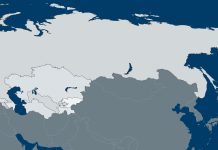The media exploded late last week with reports that Russia had paid the Taliban bounties to kill U.S. and Afghan troops. The plot was revealed by “spies and commandos” who had, among other things, discovered a large cache of U.S. dollars in a Taliban base and traced it back to Russia. The use of the terms spies and commandos is a bit odd, as they are not terms that American intelligence would normally use; U.S. operatives are not normally referred to as spies, and foreigners working for U.S. operatives are typically called “sources.” Commando is a British term adopted by the U.S. for a while but since abandoned for “special operations forces.” It’s a small but curious rhetorical point, one that could simply be explained by communication error in the translation, transmission, vetting and eventual publication of sensitive intelligence.
What’s important is that, whatever the source or path, neither the State Department nor the intelligence community has categorically denied the report. President Donald Trump claimed he had no knowledge of it, while House Speaker Nancy Pelosi has accused him of again conspiring with Russian President Vladimir Putin. Thus is the nature of election years.
Even so, the story must be taken seriously unless disproven, so the question is why the Russians would do what they are alleged to have done. Any covert operation can be blown; this one could lock the U.S. into long-term hostility with Russia. The U.S. is neither economically nor militarily without options if it chooses to retaliate. Washington has been content with the status quo with Russia for a while, but if these reports are true, or at least convincing, that will have to change. Paying bounties to kill Americans crosses a line from which retreat is difficult.
In addition, the long-running search for an understanding between Russia and Germany will have to be delayed. It is one thing for the Germans to seek accommodation with Russia at a time when the U.S. is distracted from Europe. It is another thing to seek accommodation with a nation that is paying for the deaths of the troops of a NATO partner, in a country where German troops had been deployed alongside Americans no less. Russia badly wants a better relationship with Germany, but Germany cannot break with the U.S. over this.
So when looked at rationally, this Russian operation would appear to be a huge risk for relatively little payoff. The United States is desperately trying to withdraw from Afghanistan, so if you squint you could see this as a prelude to Russia’s filling the eventual power vacuum. Except the Russians were defeated in Afghanistan before and withdrew as the Soviet Union was starting to collapse. Russia is certainly trying to position itself as a major power, but being sucked back into the quagmire of Afghanistan makes little sense.
It’s possible that the Russians either want the Americans to stay and bleed in Afghanistan or make it seem as though the U.S. is fleeing because of these bounties, thereby undermining U.S. standing. But this too is unlikely. It’s unclear how many deaths this program was responsible for, but for the program to be successful, it would have to be a visible and alarming number. That doesn’t seem to have been the case.
The problem is that we do not know the level inside the Russian system at which the operation was authorized, if in fact there was an operation at all. Nor do we know how much money was found, which could provide a sense of who greenlit it and how important it was. It doesn’t take many dollars to constitute a lot of money in Afghanistan, so it’s possible that this was something cooked up in the field or at some level far away from decision-makers. That might mean that there was no strategic plan, nor any thought given to the consequences. It could have been cooked up in Afghanistan, with a request for cash from military intelligence, which could mean Putin found out about this at the same time Trump claims to have found out.
Granted, that is a lot of “could haves” and “maybes.” Except for a plan cooked up by Russian operatives in Afghanistan, it is very difficult to see senior leaders authorizing this. Since this was meant to be secret, it would have no domestic effect and therefore no international impact. That raises the question of whether Russians leaked the operation in an attempt to influence the U.S. election by shining a light on the failure of the Trump administration to detect and respond to it. The problem is that the Russians could not be sure anyone would notice, and if it was noticed, that it would even reflect badly on Trump. It’s entirely possible that Trump was not briefed on the operation if the intelligence community regarded it as unsubstantiated. It’s also possible Trump is lying.
This story does not fit together easily. If it is true, it places the U.S. in an even more hostile position than before and massively increases pressure on allies to curtail relations with Russia. It won’t be the politicians but the public that will drive them. Russian leaders knew how dangerous this could be. So it either took shape at echelons below the powers that be, or it didn’t happen the way the media is telling it. Or the senior Russian leadership wants a confrontation. And then there is the question of what the intelligence community did in the months before learning of this. It has authorization on this level to act without presidential authorization.
But if it’s true, a very Cold War follows.





 The Geopolitics of the American President
The Geopolitics of the American President